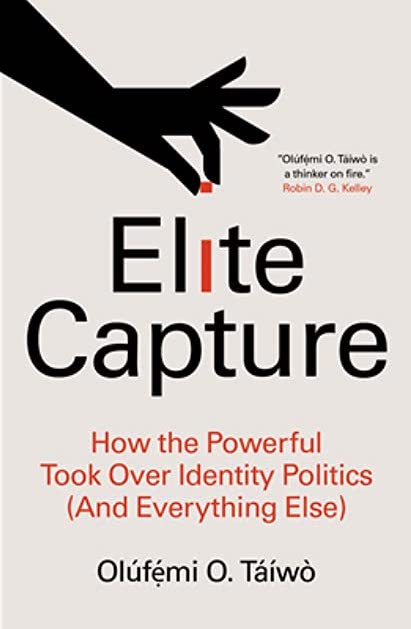Leigh Claire La Berge’s Marx for Cats reimagines the history of capitalism by analyzing archival documentation about felines. By updating bestiaries to include contemporary criticism of capitalism, La Berge positions cats as the key to an economic revolution. While the title and cover suggest a playful, possibly unserious analysis, La Berge carefully constructs a detailed history from feudalism to capitalism to point readers toward an animal-friendly future that reconsiders power structures and dares to imagine a world beyond capitalism.
Keyword: capitalism
Young People’s Self-Making in Neoliberal Capitalism: Challenges and Opportunities
This paper charts the development of young people’s self-making in neoliberal capitalism, specifying relationships between their self-making and susceptibility to mental health difficulties as they make their way in neoliberal market society. While neoliberal capitalism provides young people with opportunities to pursue and experiment with diverse identities and ways of being in the world, it also structures their self-making opportunities, by which charting selfhood becomes fertile ground for internalizing mental health problems. Our paper argues that the cultural imperative on young people to attain social status and success in the competitive and achievement-oriented forms of life that inhabit neoliberal capitalism demands that they curate and commodify highly desirable forms of selfhood that can never quite be realized. Endlessly failing to satisfy the conditions of selfhood in neoliberal capitalism, exhausted by the injunction to be more than they have already achieved, young people are socialized into increasingly complex and pressurized neoliberal capitalist cultures which challenge their ability to fulfill both their extrinsic desires for status and identity enhancement and their intrinsic needs for relatedness, belongingness, and self-worth. To conclude our paper, we summarize our main arguments and make some recommendations for promoting a more beneficial relationship between young people and the culture of neoliberal capitalism.
How Vital is Nature? Animated Bodies and Agency in Contemporary Capitalism
This paper brings into conversation two ontologies that depart from the anthropocentric norm: new materialism, represented here by the US vitalist philosopher Jane Bennett, and the animated cosmology common among Indigenous peoples, as an example of which I take Braiding Sweetgrass by the Potawatomi bryologist Robin Wall Kimmerer. I provide exegeses of both philosophies, with respect in particular to the notion of “animation,” noting that the animated sphere is much more extensive for Bennett than for Kimmerer. I then track Bennett’s shift away from environmental ethics. Finally, I relate differences in philosophy to differences with regard to race and racism, with a detailed discussion of Bennett’s tribute to Walt Whitman, and the genocidal elements within his democratic politics.
Review of Plastic Matter by Heather Davis (Duke University Press)
Heather Davis’s Plastic Matter sheds light on the implications of plastic’s synthetic universality, inviting readers to reflect critically on their relationship with plastic material and also with matter more generally. She outlines concepts such as plasticity and globalized unlocality, arguing that plastic’s ability to take on various forms contribute to ecological disruptions, biological harms, and social inequalities. Davis highlights how plastic is an everyday, ubiquitous material whose harms are unevenly displaced with regards to race, sex, and class; for example, as waste that is continually dumped on the global South. She further details how the systems designed to handle plastic’s excesses cannot contain it, leading it to swell out and impact more communities, human and beyond. The book critiques dominant narratives of plastic as an ideal of Enlightenment progress, while emphasizing the complexity of plastic and the ambiguity of its role and our relations with it. But Davis also argues that thinking with plastic invites queer relationships with new kin. Davis thus encourages readers to think beyond plastic’s simple ubiquity and to challenge the apparent plasticity of matter.
Review of Art in the After-Culture: Capitalist Crisis & Cultural Strategy by Ben Davis (Haymarket Books)
The eight essays in Ben Davis’ Art in the After-Culture are centered on the interchanges between cultural production and economic development in contemporary society. Largely told through the lens of leftist aesthetic theory, the book pushes against exploitative notions of capitalist systems and ambitions towards decentralization. Davis likens art to a “survival kit” and advocates for creative practitioners to strategically influence the direction of society.
Review of The Digitally Disposed: Racial Capitalism and the Informatics of Value by Seb Franklin (University of Minnesota Press)
The Digitally Disposed: Racial Capitalism and the Informatics of Value examines the convergence between the recursive function of value in capitalist economies and the functions of abstraction, ascription, and disposal that govern digital systems. Franklin argues that digitality’s most pernicious effects are apparent in how digital systems create the illusion of frictionlessness, connectivity, and access, while at the same time working to reinforce a logic of exclusion that externalizes the material realities of depletion. Participation in value-mediated social relations has become mandatory due to the global reach and ubiquitous extension of the informational and economic systems under which workers labor. Race and gender are social categories which position marginalized workers, especially workers from the Global South, as unreliable components in the system, the digitally disposed. Franklin argues, using the study of communication systems, that this positioning is not a flaw of the system, but is rather the intentional effect of forms of capitalist accumulation that depend on the precarity of the lives of those who generate the labor that the system depends on. A valuable contribution to the study of digitality, neoliberalism, political economy, racial capitalism, and technological history, this work shows that the social effects of digitality are not new, but rather are an intensification of the exclusions and forms of marginalization upon which capitalism depends.
Review of Elite Capture: How the Powerful Took Over Identity Politics (And Everything Else) by Olúfẹmi O. Táíwò (Haymarket Books / Pluto Press)
The discourse surrounding identity politics has become fraught with misunderstanding and co-optation by forces across the political spectrum. What was once a radical discourse initiated by the queer, Black, and Indigenous feminists of the Combahee River Collective has become a movement defined by incapacity, stigmatization, and misinterpretation. Olúfẹ́mi O. Táíwò sets out to clarify the nature of the identity politics movement and its relationship to the powerful institutions and individuals which have misappropriated the original radicalism of this idea to serve their own political gains. Through a materialist and narrative approach to identity politics and social critique, Táíwò argues that the problem is not with identity politics as such, but a specific power called “elite capture,” which stifles the potential latent in identity politics and genuine leftist social organizing. He concludes that, rather than deferring responsibility and accepting symbolic gestures of empty representation, we must begin to construct a new politics and a new house altogether.
Review of Spectacle and Diversity: Transnational Media and Global Culture by Lee Artz (Routledge)
Lee Artz’s Spectacle and Diversity: Transnational Media and Global Culture brings to our attention the ways transnational media has created representations of global culture. By analyzing examples of nations with transnational media networks he acknowledges how each nation’s media culture has become a reflection of transnational ideals. Artz critiques the transnational ideals that benefit elites and the careful fusing of the themes such as self-interest, social mobility, and individual successes into media to maintain the status quo. The book concludes with a plea for a non-capitalist international movement to bring forth a new media wave, which might benefit the interests of humanity.
Review of Transgender Marxism edited by Jules Joanne Gleeson and Elle O’Rourke (Pluto Press)
Transgender Marxism is a provocative and groundbreaking union of trans studies and Marxist theory. Exploring trans lives and movements, the authors delve into the experience of trans survival and movement solidarity under capitalism. They explore the pressures, oppression, and state persecution faced by trans people living in capitalist societies, and their tenuous positions in the workplace and the home. The authors give a powerful response to right-wing scaremongering against “gender ideology.” Reflecting on the relations between gender and labor, these essays reveal the structure of antagonisms faced by gender non-conforming people within society. Looking at the history of trans movements, Marxist interventions into developmental theory, psychoanalysis, and workplace ethnography, the authors conclude that in order to achieve trans liberation, capitalism must be abolished.
Review of Open World Empire: Race, Erotics, and the Global Rise of Video Games by Christopher B. Patterson (New York University Press)
In Open World Empire: Race, Erotics, and the Global Rise of Video Games, Christopher B. Patterson critically analyzes video games through the methodological framework of erotics. In doing so, he provides astute insights into the ways in which video games can work to challenge essentialized narratives and constructions of race while also fostering greater awareness and understanding of one’s own place within the larger geopolitical systems of capitalism and empire. Through understanding video gamers as not simply passive receptors of ideology, but rather as active participants in the gameplay experience, he contends that video games create pleasure and other forms of affective engagement through erotic play. Through this erotic play, Patterson argues that “games enact playful protests against the power, identity, and order of information technology” (7).
Review of I’m Not Like Everybody Else: Biopolitics, Neoliberalism, and American Popular Music by Jeffrey Nealon (University of Nebraska Press)
In I’m Not Like Everybody Else, Nealon is not like everybody else (i.e., a poptimist), but rather dissects the position of popular music in American society and culture in the present moment. The title of the book comes from a performance by Ray Davies (former singer for the Kinks) at the Austin City Limits Music Festival in 2006. In a YouTube video of the performance, Nealon notes that when “the song’s titling chorus returns, the hipster ‘Keep Austin Weird’ audience is shown, all in unison, chanting ‘I’m Not Like Everybody Else.'”(68) It is in this example that he sees “the mass individuality logic of biopolitics in one concise screenshot: I’m ironically just like everybody else in and through my axiomatic self-assurance that I’m not like everybody else.” (68) This passage perfectly sums up Nealon’s thesis: through a capitalism that aims to make everyone a mass individual, people reaffirm their identity “not” being like everyone else, while at the same time failing to produce their identity positively.
The Organic and the Conjunctural in Historicizing Basic Income: Response to Zamora and Jäger
In response to Zamora and Jäger’s intellectual history critique of my original essay, I reiterate the methodological necessity of grounding a historical study of basic income in a Marxist framework that considers both the organic and conjunctural. This approach illuminates the complexities of basic income as common sense under capitalism while illustrating the limits and opportunities for Left organizing around the idea of basic income.
Review of The Cultural Production of Intellectual Property Rights: Law, Labor, and the Persistence of Primitive Accumulation by Sean Johnson Andrews (Temple University Press)
Sean Johnson Andrews’ new book is a timely critique of Intellectual Property Rights (IPR) from a critical Marxist perspective. But the true goal of this work goes much deeper into tracing the history of the cultural foundations of the liberal state, private property laws, and labor relations, or what he calls the “reified culture of property.” Regarding the latter, Andrews argues that IPR are only the latest manifestation of this culture. It is an invention functioning like a bandage to hold together the privileged status and power of the capitalist property-owning elite, a power inevitably hemorrhaged by the twin processes of digitization and globalization. In fact, the very existence of IPR, he contends, exposes the fundamental flaws of neoliberal capitalism, presenting us with a unique opportunity. Starting with an examination of IPR, he works backwards to critically interrogate the ideology developed around problematic notions of value creation and the division of labor which both lie at the very heart of the culture of property.
Review of Farm Worker Futurism: Speculative Technologies of Resistance by Curtis Marez (University of Minnesota Press)
In this focused visual-cultural history of farm work in California over the course of the twentieth century, Curtis Marez draws on a materialist and critical approach to understand the representations, in various media and formats, of farm workers, and of the activist movements that they have championed. Marez frames analyses of cultural artifacts, including speculative and science-fiction books and films, documentaries, propaganda, and studio artworks, in the historical and material conditions of those farm workers’ movements. Throughout, he foregrounds the people who shaped modern labor movements, from the vineyards of the San Fernando and San Joaquin Valleys and beyond. Marez argues that competing material interests, socio-technical mediations, and historical conditions—the animating conflicts of this account, between agribusiness and farm laborers—have shaped broader expressions of “americanism”, imagined futures, and visual cultures across North American societies, through the very contradictions that animate and constitute them.
Review of Postcolonial Nations, Islands, and Tourism: Reading Real and Imagined Spaces by Helen Kapstein (Rowman & Littlefield International)
Helen Kapstein’s book Postcolonial Nations, Islands, and Tourism: Reading Real and Imagined Spaces positions tourism as a form of colonialism. Specifically, the author lays out the similarities between different forms of modern day tourism and how they reflect colonial practices, with reference to three foundational values: surveillance, control, and consumption. Kapstein’s book is a riveting read and is perfect for those interested in post-colonialism, tourism, the creation of real and imagined spaces and desire studies.













